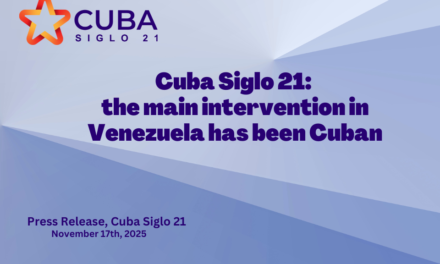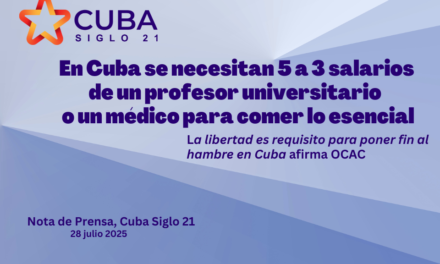Descargar informe completo en español pdf
Download Complete Report English pdf
See Summary
August 15, 2024 –The Dossier “The Useless Mega Fraud of Nicolás Maduro” published by Cuba Siglo 21 exposes the devastating consequences of the 2024 Venezuelan presidential elections, which have been widely denounced as fraudulent and lacking legitimacy both inside and outside the country.
Emilio Morales, the author of the document, details how the government of Nicolás Maduro, in its attempt to perpetuate itself in power, blatantly manipulated the electoral process, using tactics such as the disqualification of opposition candidates, censorship of the media, and the use of state resources for his campaign. Despite these efforts, the exceptional level of fraud I this elections have left his regime in a deep crisis of legitimacy.
Although the repetitive use of electoral fraud has allowed Maduro to remain in power so far, his government faces an uncertain future. Internal resistance and international pressure remain key factors that could eventually force a change in the country’s situation. However, the author considers thata Cuba’s interference plays an important role in the outcome of the mega-fraud, because the Cuban government considers it crucial to keep Maduro in power. After the elections, several unscheduled flights from Havana to Caracas suggest Cuba’s larger direct intervention in the crisis.
This analysis highlights that, although the government insists on fraud, the path to a free and democratic Venezuela remains a possibility, driven by resistance and global pressure.
The situation in Venezuela constitutes a neuralgic problem for regional and international stability. If Nicolás Maduro consummates the fraud it would undermine regional and international governance. Venezuela has become a narco-state and platform for exporting drugs to multiple global destinations. To the US through Central America and Mexico, and to Europe through African routes.
“Convincing” Maduro to recognize his defeat in the elections is not a task that can be accomplished only with positive incentives (Maduro received international concessions, such as the release of drug traffickers and the lifting of sanctions, in exchange for promises of free elections, which he later reneged on). In any case, it requires, in a complementary manner, potential “punishments” that could be perceived as powerful and credible by the dictator and his entourage. Until Maduro and Havana feel the credible threat of such pressure on their heads, they will continue to insist on the strategy of resisting any transference of power at all costs.







